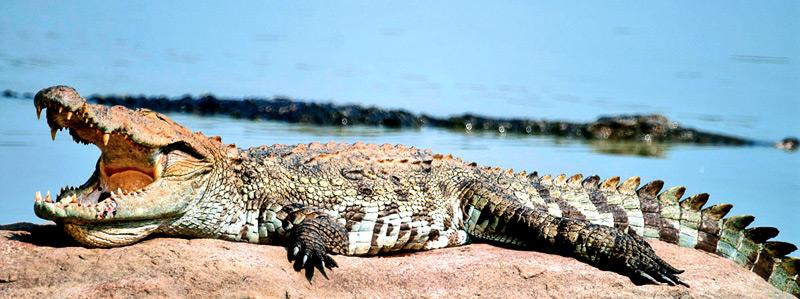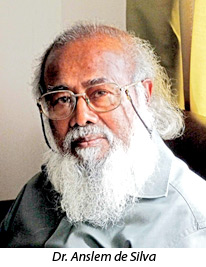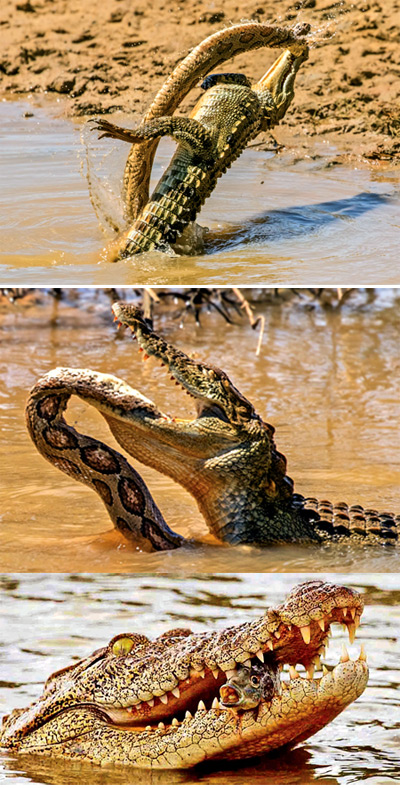
The monthly lecture organised by the Wildlife and Nature Protection Society (WNPS) will be delivered by Dr. Anslem de Silva on Sri Lanka’s Crocodiles: Living Fossils at the BMICH on March 24 at 6 pm.
 Often called living Fossils, crocodiles are considered to be one of the most successful species living on Planet Earth today. They have survived, virtually unchanged, for over 100 million years. Crocodiles are also the largest reptile in Sri Lanka, famed for being one of the best places to watch ‘Mugger Crocs’ in all of Asia.
Often called living Fossils, crocodiles are considered to be one of the most successful species living on Planet Earth today. They have survived, virtually unchanged, for over 100 million years. Crocodiles are also the largest reptile in Sri Lanka, famed for being one of the best places to watch ‘Mugger Crocs’ in all of Asia.
Recently, crocodiles hit the headlines in Colombo, and beyond, with social media doing their best to demonise these ancient creatures that merely follow their instincts, one of which is to keep away from humans. Humans don’t always, however, respect the domain of crocodiles, and that is when the trouble starts.
Dr. Anslem de Silva is the current Regional Chairperson of the Crocodile Specialist Group IUCN/SSC for South Asia and Iran. For nearly 60 years, he has worked extensively on the reptiles and amphibians of Sri Lanka and has, to his credit, nearly 500 publications on various aspects of herpetology – these include almost 60 books, and chapters in prestigious publications (some published in the UK and India).

In 2013, he organised the World Crocodile Conference in Negombo. In the same year, he published a comprehensive 254-page book on Sri Lanka’s Crocodiles. He has also published dozens of research papers on them. He conducted the first island-wide survey on Human-Crocodile Conflict, including of crocodile burrows.
In 2007, he was the Consultant for the WWF/American Red Cross Partnership on Crocodile Conflict in the Nilwala River, around Matara. In 2018, he was also a Consultant for the development of an ‘Action Plan for mitigation of Human-Crocodile Conflict in the Andaman Islands’, prepared by the Wildlife Institute of India. Currently, he is working on the ‘Mugger Crocodile ‘Crocodylus palustris Status Survey and Conservation Action Plan’ for the IUCN/CSG.
In 2019, in recognition of his contributions towards herpetology, and conservation, the IUCN/SSC awarded Dr. De Silva with their highest honour, the Sir Peter Scott Award of Conservation Merit, the first and only Sri Lankan to receive the accolade.
In his lecture, Dr. De Silva will talk on crocodiles in Sri Lankan archeology and history; traditional techniques in the treatment of injuries sustained from crocodile attacks, including a ‘charm’ to protect one against crocodile attacks, dating from the 14th Century; the identification of the different species in Sri Lanka, and of their behaviour, including interesting accounts of their communal fishing techniques and ‘Crocodile Houses’ (S. ‘Kimbulgewal’); conflict is a serious issue that is often not adequately addressed and the Importance of crocodiles: how crocodile blood is used to treat anemia, produce the most powerful antibiotics, and many other aspects of their significance, including that of the crucial role they play in maintaining the natural balance of the eco-systems they live in.
